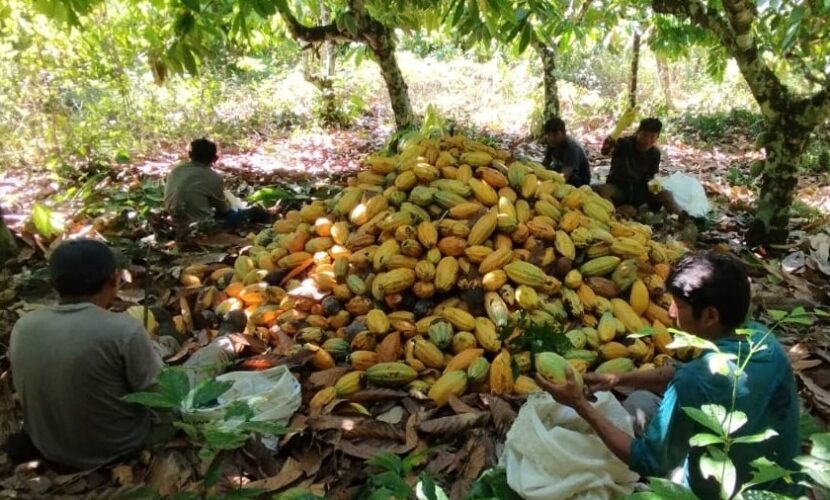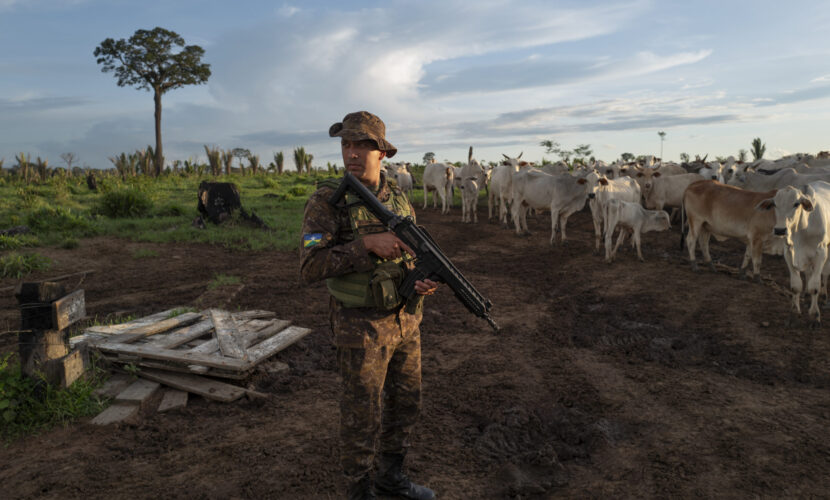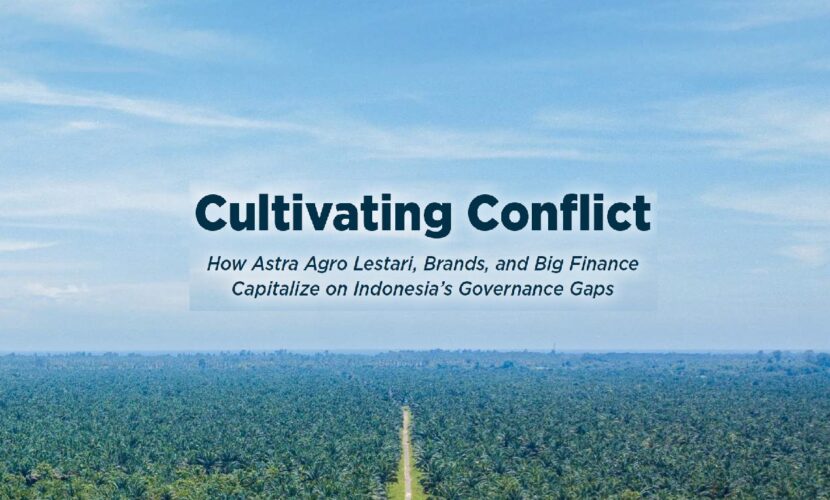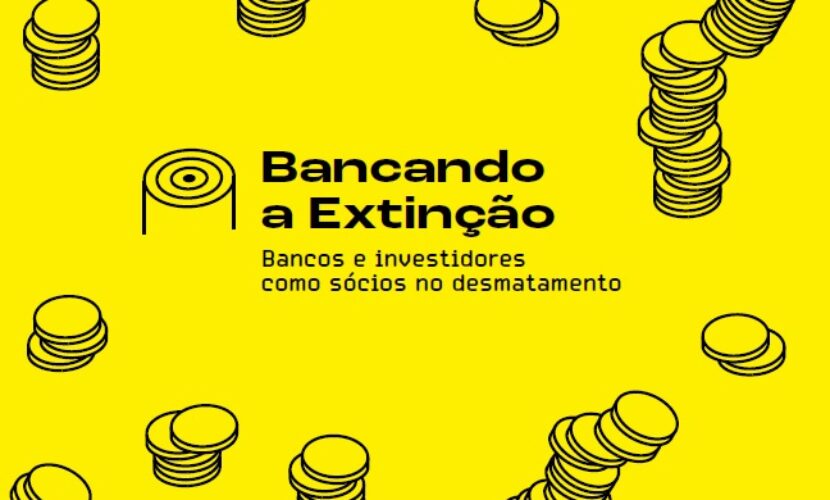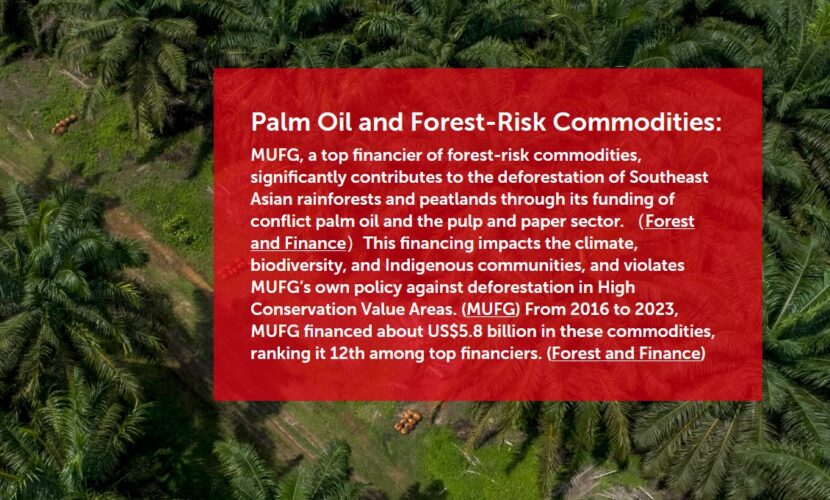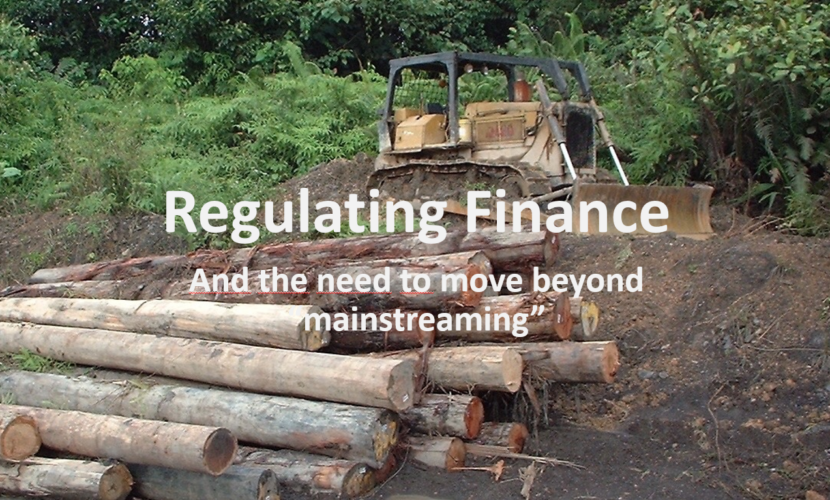News
Banks must respect Indigenous Peoples’ land rights to Keep Forests Standing
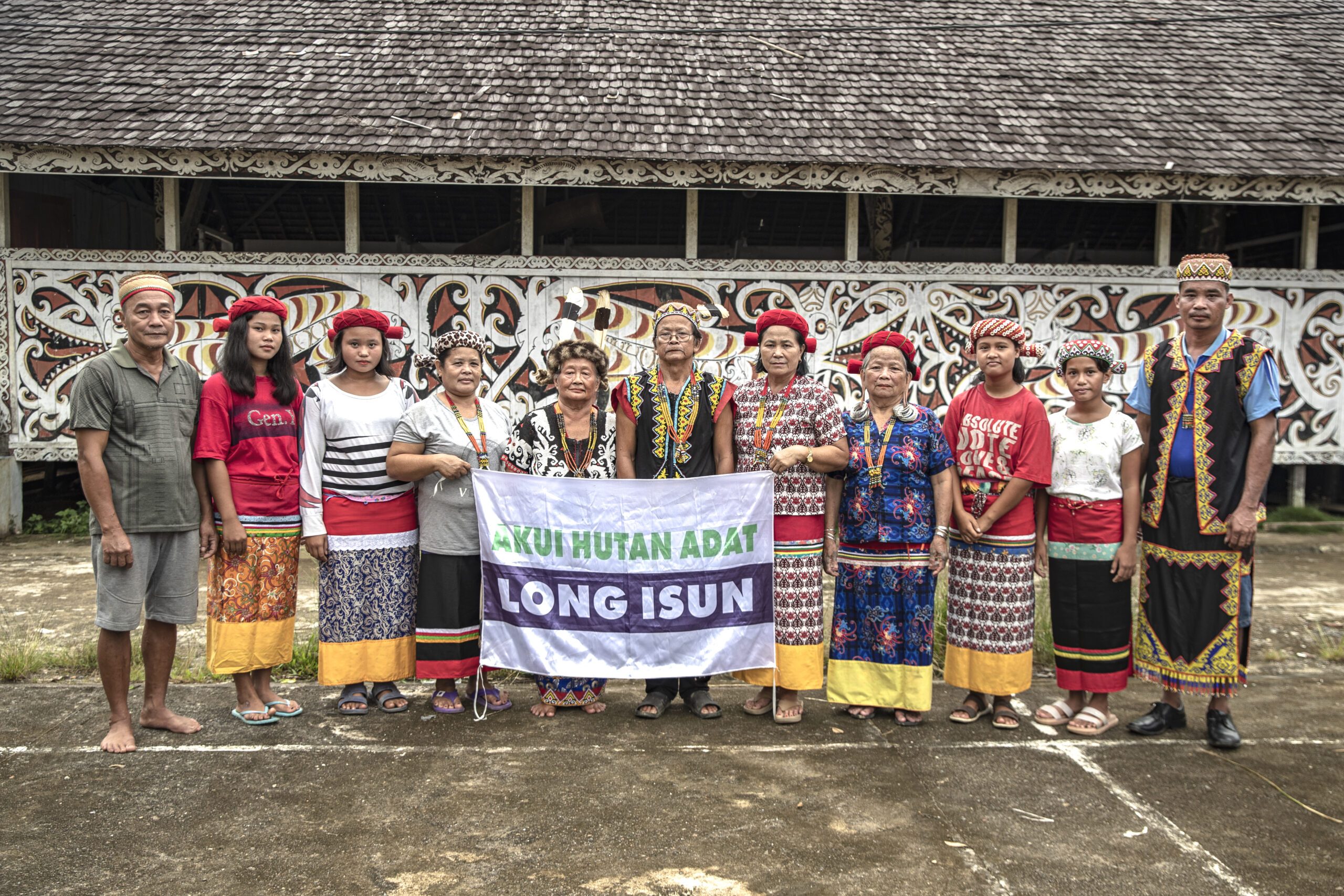
The Long Isun community is fighting to protect their forests in the heart-of-Borneo from exploitation by the Harita Group.
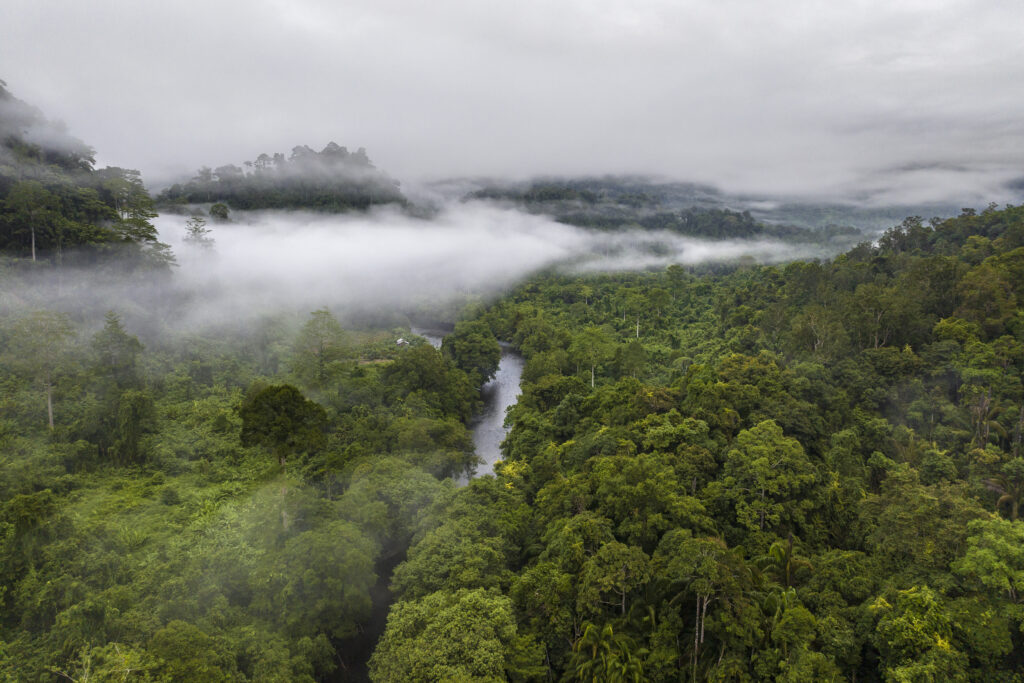
Indigenous Peoples are increasingly experiencing violence and suffering as their lands are taken from them and destroyed to produce commodities such as timber, palm oil, pulp and paper. Industrial logging and agribusiness is driving human rights violations as well as deforestation, forest degradation and threatens ecosystem integrity which all life on earth depends on. Although Indigenous Peoples make up just 6.2% of the world’s population, they protect 80% of the world’s biodiversity1 2. Therefore, respecting the rights of Indigenous Peoples is critical for protecting biodiversity, preserving intact forests and supporting stable ecosystems. Banks must play a role in ensuring their clients respect Indigenous Peoples rights to their territories.
The Community of Long Isun: Forests and Indigenous rights under threat
The Dayak Bahau community of Long Isun has been fighting to protect their ancestral land from logging and palm oil development for over a decade. This Indigenous community in Indonesian Borneo is on the frontlines of the expansion of industrial logging and deforestation. Their lands are home to one of the last intact rainforests in Indonesia’s East Kalimantan province which are under threat from one of Indonesia’s most powerful palm oil and timber tycoon empires – the Harita Group.
These communities rely on the forest for everything and their way of life is underpinned by their sacred relationship with their land. Through customary practices and knowledge of sustainably managing resources in their territories, they are able to steward the forest and keep it standing.
The Long Isun Community are calling for:
LAND BACK.
The Harita Group must respect the Long Isun community’s rights over their traditional territory and the resources within it. The Harita Group must respect the community’s decision to say “no” to logging and ensure that the forestry companies it controls cancel all future plans to establish logging concessions in Long Isun territory.
INDIGENOUS RIGHTS.
The Indonesian government must recognize the rights of the Long Isun community to own, manage and use the resources within their traditional territory and must protect those rights against corporate exploitation.
CORPORATE ACTION.
Banks – DBS, UOB, SMBC, OCBC, and Maybank – must withhold any financial services to any entity in the Harita Group unless they permanently cancel their plans to log the customary forests of the Long Isun community and request the excisions of their customary lands from their logging concessions.
(Read more about the Long Isun community and the campaign to Keep Forests Standing here.)
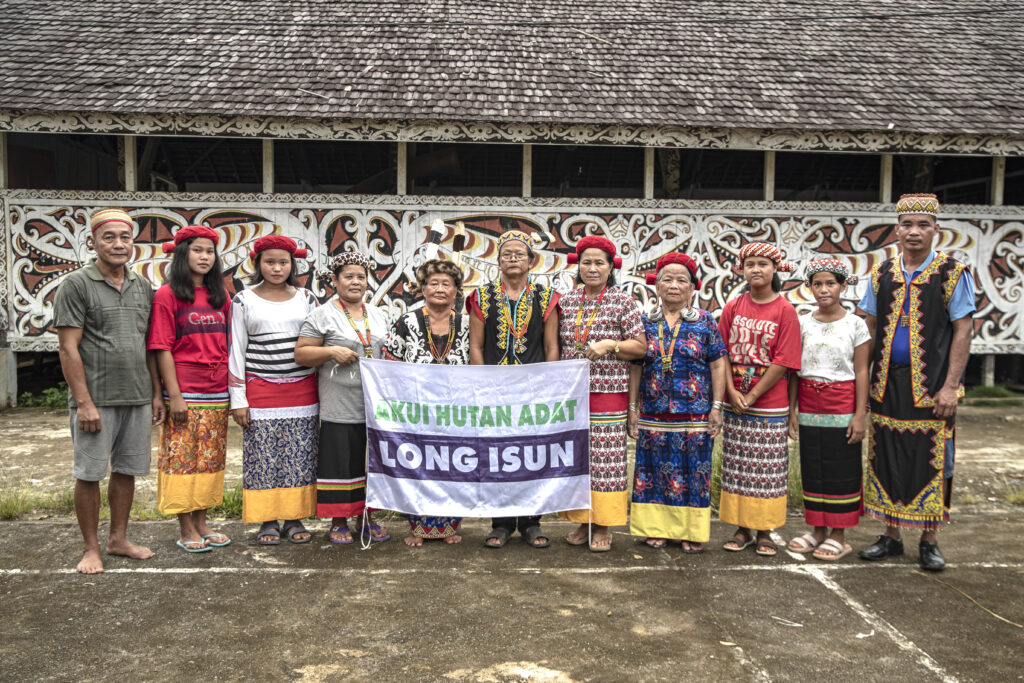
Photo: Khairul Abdi / RAN
The tycoon company threatening the forests of Long Isun
Harita Group is a business conglomerate owned and controlled by the Lim family, with Mr. Lim Hariyanto Wijaya Sarwono as its ultimate beneficiaries. RAN has published a report which details the group’s failings to respect the Long Isun community’s right to give or withhold their Free, Prior and Informed Consent (FPIC) to logging operations on their territory. Roda Mas, a logging company which is part of the Harita Group, has failed to respect the rights of the community of Long Isun to say “no” to two logging operations on their Indigenous territory.3 The Harita group acknowledges that it owns and controls the two logging companies that have logging concessions that overlap the Long Isun communities territory in East Kalimantan, Indonesia.4
The Long Isun community has been staunchly opposing Harita Group/ Roda Mas’s plans to log their forests since 2008. They have seen the impact of decades of fires, logging, mining, and palm oil development in the region which have reduced Borneo’s dense rainforests by one-third. As in many cases throughout Indonesia, the concessions which overlap with Long Isun’s territory were acquired without consulting the affected communities. As a result, the company began logging Long Isun’s customary forests in 2014 without the community’s consent.
Producers of forest-risk commodities must be able to prove full compliance with laws, regulations, and Free, Prior and Informed Consent (FPIC) processes for all areas under the management and control of the corporate group. RAN’s FPIC Report report found that the largest forestry conglomerates in Indonesia lack adequate FPIC policies and the policies and procedures that are in place are not sufficient and are poorly implemented.
The industry standard of No Deforestation, No Peatland and No Exploitation (NDPE) has been adopted by major brands and producers of palm oil, including Harita Group’s palm oil company––Bumitama Agri Limited. Bumitama claims to adhere to the NDPE standard, and international human rights norms. This is not the case however, as the Harita Group has failed to respect FPIC rights across its entire operations. The NDPE requirements must be adhered to across the operations of the entire corporate group to prevent a leakage market for non-compliant commodities.
Harita Group’s Bankers
According to Forests & Finance, the Harita Group has been financed by some of the largest banks in Singapore, Japan and Malaysia. In 2019, DBS, UOB, OCBC and SMBC provided a total of USD 175 million in corporate loans to Harita Group’s palm oil division – Bumitama Agri (PGX: P8Z). These loans are likely to have a 3-5 year term so may be up for renewal very soon. Meanwhile, Maybank underwrote USD 169 million in bond issuances.
Both DBS, SMBC and Maybank have committed to the No Deforestation, No Peat and No Exploitation (NDPE) policy standard. This means they must conduct due diligence to ensure their clients – like Bumitama Agri – their suppliers and wider corporate group meet the requirements and can provide evidence of compliance.
We expect banks to improve their policies and procedures to ensure the scope, quality and implementation results in material changes to their financing and excludes companies at the forefront of deforestation, degradation of primary forests and Intact Forest Landscapes, and human rights abuses. Financial institutions must explicitly require their clients and its suppliers to adopt and implement a cross commodity No Deforestation/Conversion/Degradation, No Peatland and No Exploitation (NDPE) Policy at the corporate group level.
The scope of the policy must apply to all forest-risk commodities which include palm oil (crude palm oil, palm kernel oil, and derivatives), wood pulp used in consumer products, paper and packaging, soy (including embedded soy in dairy products via animal feed), beef (including beef tallow), cocoa, coffee, and other forestry and agricultural products linked to deforestation. The policy must apply to all financial services provided, not only to project finance or projects where the majority use of proceeds has been identified as high risk.
Compliance with the No Deforestation and No Peatland aspects requires the protection of forests and natural ecosystems including High Conservation Value areas (HCV areas),5 High Carbon Stock forests (HCS forests),6 primary forests7 and Intact Forest Landscapes8 from deforestation, conversion, and degradation as per commodity sector specific cut-off dates, or pre-existing commitments with a cut-off date that was earlier than the sector specific cutoff dates. Remediation of environmental harm is required for all violations after the cut-off dates.
Compliance with the No Exploitation aspect requires the respect for internationally recognized human rights,9 throughout operations, supply chains and financing. Affected or potentially affected Indigenous Peoples’ and local communities must have been consulted and their right to give or withhold their Free, Prior and Informed Consent (FPIC) respected.10 Establishment and demonsted use of an effective grievance mechanism aligned with the UN Guiding Principles on Business and Human Rights to resolve grievances. Zero tolerance for intimidation, violence, criminalization of affected community members/rights holders, Human Rights Defenders, land, and environment defenders.11
[1] The International Labour Organization (ILO), “Implementing the ILO Indigenous and Tribal Peoples Convention No. 169: Towards an inclusive, sustainable and just future,” 2019.
[2] National Geographic, “Indigenous peoples defend Earth’s biodiversity—but they’re in danger,” November 16, 2018.
[3] The two concessions controlled by the Harita Group cover 21,443 hectares of the Long Isun community’s territory — 8,959 hectares are within the PT. Roda Mas Tbr Kalimantan (PT. RMTK) concession, and 12,484 hectares are within the PT. Kemakmuran Berkah Timber (PT.KBT) concession––as shown in the 2018 indicative participatory map of Long Isun’s customary territory which is based on the boundary in 1966.
[4] Harita Groups responses to Rainforest Action Network’s report are available on https://www.ran.org/publications/long-isun/
RAN has undertaken an assessment of the group of companies in the Harita Group, using the recently published methodology for implementing the Accountability Framework initiative (AFi) definition of corporate group. There is extensive proof of common ultimate beneficial ownership and evidence of common family control. A review of the corporate structures and governance of PT. KBT and PT. RMTK and Bumitama Agri demonstrate that all of these companies are under common control of the Harita Group, per the AFi definition. These two Roda Mas companies and Bumitama Agri Limited are both part of the Harita Group, under the control of the Lim family, with Mr. Lim Hariyanto Wijaya Sarwono, and his wife and children, as its ultimate beneficiaries. There is substantive evidence to show that PT. KBT and PT. RMTK are ultimately held by Mr Lim Hariyanto Wijaya Sarwono and his family. As well as sharing ownership of companies across the timber and palm oil divisions, two brothers in the Lim Family––Lim Gunawan Hariyanto and Lim Gunardi Hariyanto––both hold positions on the board of companies in both Roda Mas and Bumitama. Lim Gunardi Hariyanto has over the years occupied key management positions in a number of Bumitama companies, which furthers evidence of shared management.
[5] As defined by The HCV Network https://hcvnetwork.org/
[6] As defined by The High Carbon Stock Approach http://highcarbonstock.org/
[7] As defined by the Convention on Biological Diversity https://www.cbd.int/forest/definitions.shtml
[8] As defined by The IFL Mapping Team http://www.intactforests.org
[9] As defined by Internationally recognized human rights norms per UNDRIP, UNDHR, ILO Fundamental Conventions, ILO 169 on Indigenous and Tribal Peoples, FAO VGGT, UN Guiding Principles on Business and Human Rights, UN Declaration on the Rights of Peasants.
[10] The fulfillment of the rights of FPIC must be in accordance with UNDRIP, HCSA Social Requirements, and the Accountability Framework initiative Operational Guidance on Respecting the Rights of Indigenous Peoples and Local Communities.
[11] As per the Zero Tolerance Initiative https://www.zerotoleranceinitiative.org/ , UN Declaration on Human Rights Defender, and The Guiding Principles on Business and Human Rights: guidance on ensuring respect for human rights defenders.
